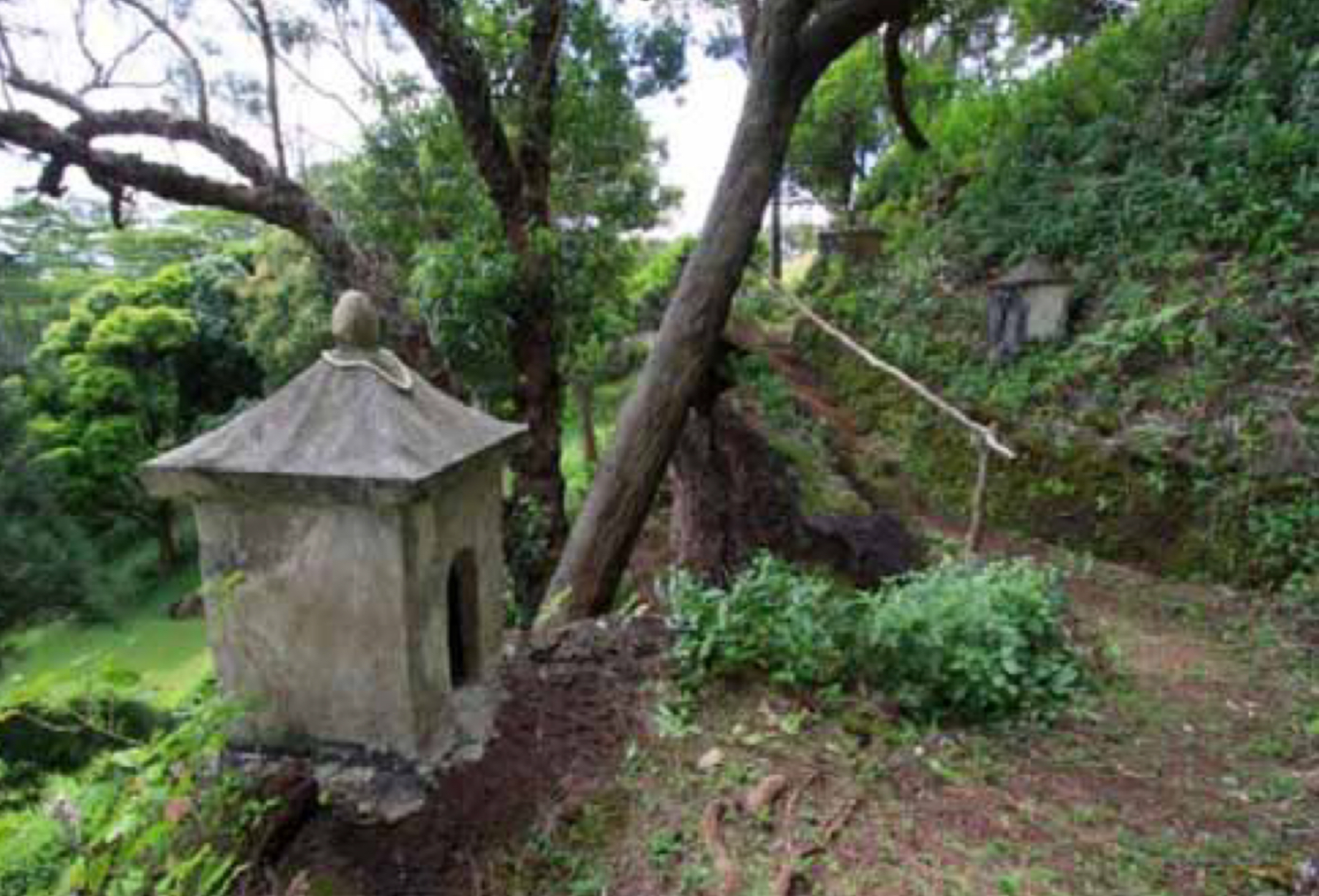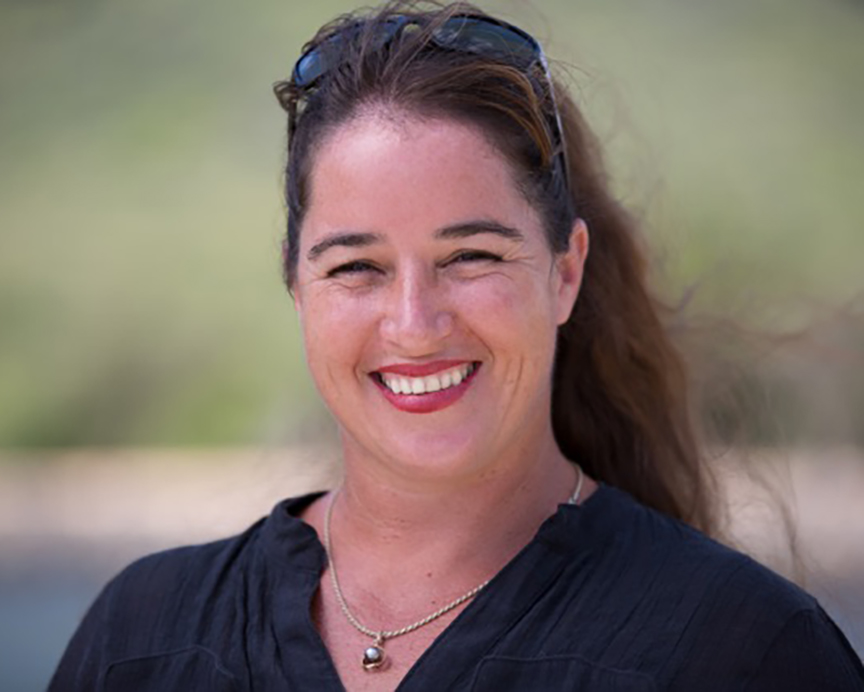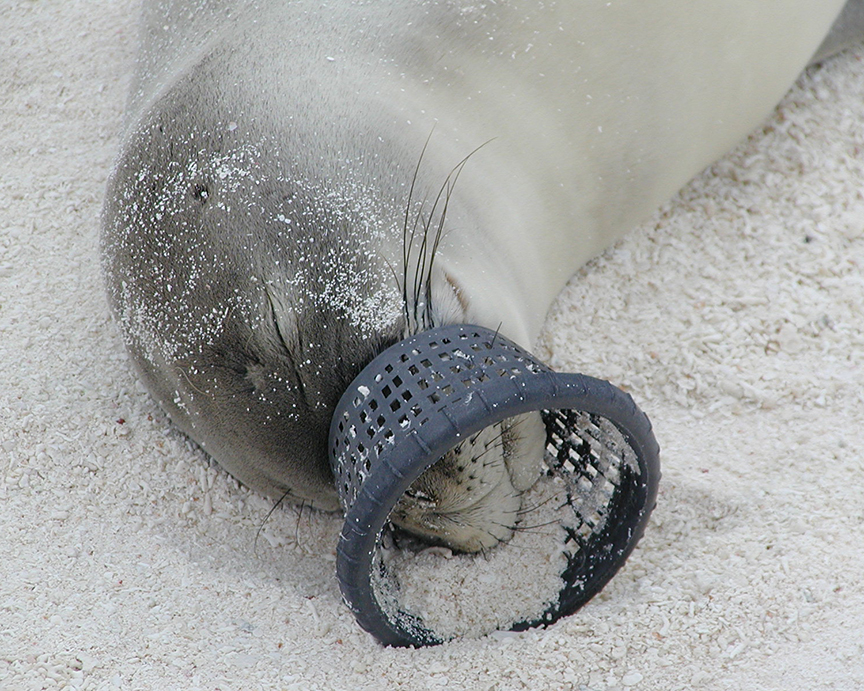By Léo Azambuja

Kanuikapono student Belle Gomes, 16, poses with a holokū by Barbara Green fashioned after a Queen Emma’s holokū, at Queen Emma’s Summer Palace on O‘ahu. Photo by Kai Markell
As a 12-year-old girl weighing nearly 200 pounds, Barbara Green struggled to find clothes that would fit her. Rather than feeling sorry for herself, she decided she would create her own outfits.
“My dad had bought my mom a sewing machine that she never used, so I thought, ‘OK, why don’t I learn how to use the sewing machine? So I started making my own clothes,’’ she said.
The rest is history, literally. Today, Green is a successful seamstress and clothes designer who is not only making history; she is also preserving history. Besides making custom dresses, shirts, hotel uniforms, hula school uniforms, theater costumes, and outfits for TV shows and more, she also specializes in holokū — elegant dresses worn by Hawaiian royalty when Hawai‘i was a sovereign kingdom.
Green’s latest creation, a holokū modeled after Queen Emma’s holokū, was worn by 16-year-old high-school student Belle Gomes when she took first place in the Holokū phase of the Miss Hula Teen competition on O‘ahu last November. Gomes also wore Green’s rendition of Princess Ka‘iulani’s holokū to take first place in the hula phase of the competition. The teenager came back to Kaua‘i with the title of Miss Hula Teen 2018 for the state of Hawai‘i.
The holokū became popular among Hawaiian royalty in the 19th century. It was inspired by the dresses worn by the first missionary women who arrived in Hawai‘i in 1820. Over the years, the holokū evolved into fitted bodices and sleeves, and were often made of finest materials. The dresses were worn by nobles and royals to tea parties, balls and other special occasions.

Barbara Green at the Historic County Building wearing the first holokū she ever made, designed after a Queen Lili‘uokalani holokū. Photo by Léo Azambuja
Green made her first holokū in the 1990s while working as a seamstress in Los Angeles, Calif. The Daughters of Hawai‘i society planned a holokū ball in a fancy hotel in Downtown LA, and Green crafted a holokū modeled after one of Queen Lili‘uokalani’s dresses. That first holokū Green made won the best overall award in the ball — and she still has the dress.
“Being born and raised in Hawai‘i, I try to do as much as I can to preserve the culture,” said Green, adding her ethnicity is predominantly Filipino, so she loves creating things that represent cultures, whether it’s a holokū from Hawai‘i or a terno dress from the Philippines. In the International Costume Ball in October, she designed African outfits for her and Rod Green, inspired in Queen Ramonda and King T’challa from the movie Black Panther, and won Best Couple award.
“It’s really special to me to be able to create something that represents something with a deeper meaning. You can make a dress, but if you make a holokū, it represents the Hawaiian monarchy that we don’t have anymore,” Green said.

Kim McDonough, left, and Barbara Green at an event at the Kaua‘i Marriott and Beach Club. Contributed photo
In the last three years, Green made the dresses for the women portraying Queen Emma and her ladies in waiting at the annual Eo e Emalani i Alakai festival in Koke‘e in October. Each year, someone different is hand-picked to portray Queen Emma at the event. Their dresses are not quite a holokū. Rather, they are Hawaiian dresses crafted to be worn while horseback riding — Queen Emma, her lady in waiting and the guy who portrays the queen’s guide arrive at Koke‘e Meadows on horseback.
One of the rewards of recreating such historic attire, Green said, is opening the eyes of younger generations to what Hawaiian royalty and nobles wore in the past.
“Every time you wear it, you remember and celebrate (the culture),” she said.
Another reward of crafting holokū is being able to teach her art to younger generations.
“Being a mom, anytime you get to teach your children to do something that they can be proud of is priceless,” Green said.
Seeing Green talking about her art and how much she values passing it on the next generations, it becomes transparent she hasn’t lost her passion since that first time she picked up her mother’s sewing machine as a 12-year-old child.
“Ever since then, I always knew what I wanted to do. I applied to the Fashion Institute of Design when I was 14, and they said ‘you’re too young,’” said Green, adding they instructed her to apply when she was a little older, maybe a junior in high school.

Sharalyn Kahealani Bucasas as Queen Emma, left, and Shannon Nohealani Bucasas as the lady-in-waiting, both wearing dresses by Barbara Green, at the Eo e Emalani i Alaka‘i event in Koke‘e in October. Photo by Léo Azambuja
So she did it, and in 1988, she moved to LA to attend the prestigious fashion school. She graduated in 1990, and from then on found work in stage productions, TV shows, Hollywood movies and many custom orders.
In 1993, Green moved back to Kaua‘i for a short period to help her mother. Here, she started doing outfits for hula halau. The following year, she opened her business, Definitely Baba, and moved back to LA where she continued to craft outfits for Mainland-based hula halau, make custom orders and provide services for the entertainment industry. She even made a holokū as a wedding gown.
Interestingly, she also made a lot of Hawaiian clothing while living in LA. The loud floral prints are not so popular among locals in Hawai‘i, but on the Mainland, people love to wear it casually, she said. Lately, the market for Hawaiian clothing has been evolving toward tribal prints with monochromatic tones rather than the loud pinks and yellows, she said.
After many years away, Green moved back home in 2003.

Kanuikapono student Belle Gomes, 16, is seen here in O‘ahu’s Queen Emma’s Summer Palace wearing a holokū by Barbara Green fashioned after a holokū once worn by Princess Ka‘iulani. Photo by Kai Markell
“When my mom got ill, I came back to Kaua‘i,” she said. “I sold my house, left my job in LA, came back to take care of my mom and never regretted it. I was happy that I was here for my mom, and my mom was able to pass away at home.”
On Kaua‘i, Green went right back to sewing for hula halau. She works with resorts, retailers and private citizens. She also continued to make holokū. Each year she crafts three or four of them, and whoever wants one has to book a year in advance.
And then there are the fashion shows. She has been a fixture at the annual Kaua‘i Fashion Week. This year, she crafted a wedding gown that borrowed Hawaiian patterns from the groom’s shirt, and it was a success among the public.
“I love taking the elements of aloha wear and making it more modern, which was the inspiration for that,” green said of the wedding gown.
Moving her business from LA to Kaua‘i 15 years ago, created additional challenges. Shipping is more expensive, there are no pattern-cutting services or garment manufacturers, and the entertainment industry if far away. But Green pulls it off, with the help of a network of seamstresses, a lot of hard work and plenty of midnight-oil-burning to meet deadlines.
Though her business, Definitely Baba, has grown quite a bit, Green has resisted creating a website for fear of not being able to handle all the potential extra work that may come. After all, she said she doesn’t know how to say “no” to customers.

Barbara Green at the 2018 Kaua‘i Fashion Weekend. Contributed photo
That 12-year-old girl who couldn’t find clothes that would fit her grew up to become a lean and elegant adult. But Green never forgot the struggle that propelled her career. She said later in life, she realized regardless of their size — from petite to double extra large — people always have difficulty in finding clothes that fit them right. So they usually settle for T-shirts or anything else that fits them.
“The thing that keeps me inspired and going is when I see how happy these people are when I make them something that makes them look and feel confident,” she said. “It warms my heart every time. I actually had customers cry when they put my stuff on.”
Find Green at definitelybaba@yahoo.com, or call (808) 822-7987 or (818) 383-1155.
Discover more from ForKauaiOnline
Subscribe to get the latest posts sent to your email.
























Leave a Reply